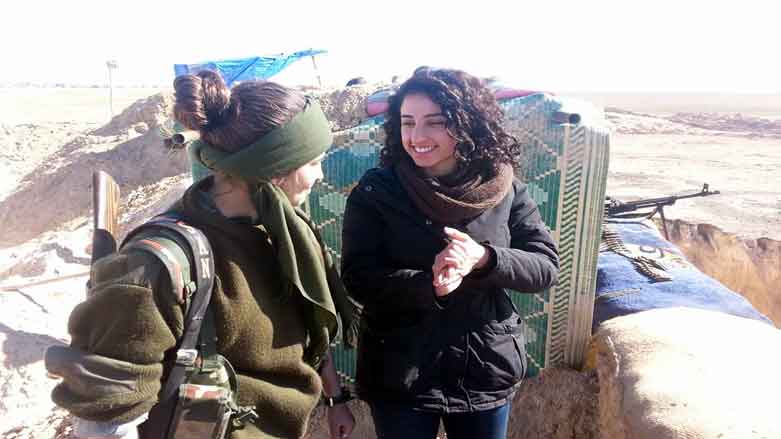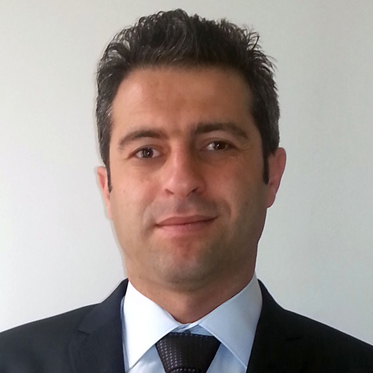Rojava’s Valentine's Day: ‘Love is a battlefield’

QAMISHLO, Syrian Kurdistan (K24) – Living amid violent conflict and devastating war does not mean that love is absent, people from various cities in Syrian Kurdistan (Rojava) told K24 optimistically on Sunday.
“The common misconception about Kurdish women fighters is that they are only concerned with war and conflict,” Solin Mohammad Amin, a female journalist, told K24 from the Kurdish town of Amuda. She has been speaking to the Kurdish Women’s Protection Units (YPJ) fighters.
“In fact, their love for their homeland, families and loved ones prompt them to fight against the extremists who are against love in all its forms,” Amin added.
Nalin, a women fighter in Qamishlo, said, “Despite the challenging nature of the warrior’s life, I still greet Valentine’s Day with joy, and because I love my husband and daughter, I fight for them against the terrorists.”
Nujaan, a women fighter in the outskirts of the Kurdish town of Ras al-Ain (Sari Kani in Kurdish), says, “In war, love for me is a battlefield and in peace it is struggling to protect that noble feeling.”
“I think the world has seen what happened in Shingal [Sinjar in Iraq] where IS raped the Ezidi women and massacred the men. It is a matter of honor to defend ourselves first, and then our families and lands,” she said, noting that through fighting she can defend her love.
Nisreen, a secondary teacher from Qamishlo city, celebrates Valentine's with her friends from other ethnic and religious backgrounds. “Referring to Qamishlo as The City of Love is very popular in the Kurdish culture because many ethnicities and followers of different religions coexist, including Kurds, Arabs, Armenians, Christians, Muslims, and Jews,” she said.
Shivan, a photographer from Hasaka, says that the exchange of apples decorated with cloves is an old Kurdish tradition celebrated on Valentine's Day in both Syria and Iraq.
“On Valentine’s Day, it is common for Kurds to exchange apples adorned with cloves, creating different patterns on the fruit,” Shivan said pointing out that an apple, preferably red, represents love and prosperity.
Sara Kadir, a Kurd from Kurdistan Region, who lives in Dubai, told Gulf News a few years ago, “When I was in Kurdistan last year, I was given a green apple, and asked, ‘Is the apple red or white?' If my answer was red, it indicated a love interest, if white, it meant only platonic. An apple helps establish where a person stands in a relationship," Kadir explained.
Valentine's or lovers’ day is celebrated on Feb. 14 of every year where people across the globe, including Rojava and Kurdistan Region of Iraq, exchange presents and renew promises for their loved ones.
Reporting by Hisham Arafat
Editing by Karzan Sulaivany and Ava Homa

The preservation of a red apple with cloves is a Kurdish tradition symbolizing Adam and Eve’s relation with the apple, representing love and prosperity, Feb. 14, 2013 – Photo: Safin Hamed
